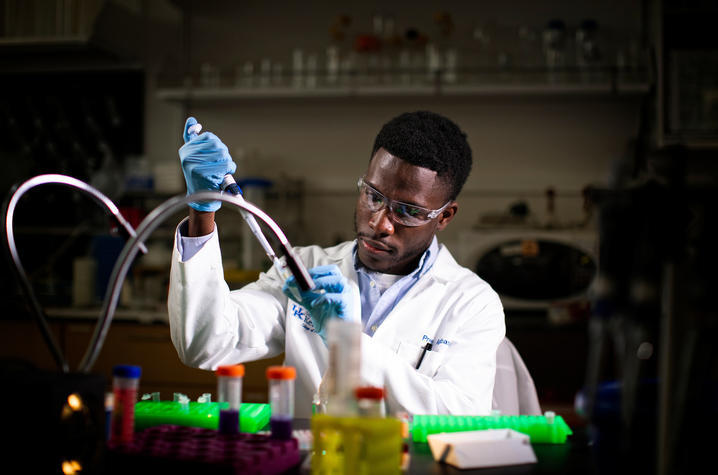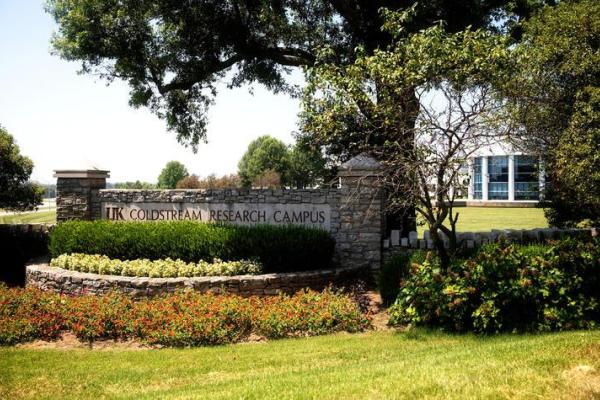UK Creating Multimillion-dollar Research Initiative Around Racial Disparity, Inequity

University of Kentucky President Eli Capilouto on Wednesday announced a five-year, $10 million commitment to sponsor UK research focused on racial disparities and inequity across broad areas, ranging from health to the historical foundations of systemic racism.
The proposed research initiative, which will require approval from the University Senate, represents a historic commitment by UK into racial disparities and equity. The initiative comes as UK has launched a comprehensive effort, involving hundreds of members of the campus community, aimed at creating a more diverse, equitable and inclusive university. Read more about that effort here: https://www.uky.edu/president/diversity-equity-and-inclusion.
“We are a research institution. A critical part of our mission is finding solutions to the issues that challenge our state and our world,” Capilouto said. “Systemic racism over generations has inarguably impacted health and life expectancy, economic and financial standing, the educational attainment and success of Black people and persons of color over centuries. What we bring to the table is a world-class research institution with scholars and scientists who can work between and among disciplines to find answers to the most intractable of problems and what is fundamentally the issue that has simultaneously shaped and scarred a nation.”
Specifically, Capilouto has asked UK Vice President for Research Lisa Cassis to designate the UNITed In racial Equity (UNITE) Research Initiative as a Research Priority Area — one of now seven such research programs across the campus.
The other six research priority areas include: cancer, cardiovascular disease, diabetes and obesity, energy, neuroscience and substance use disorders. You can read more about research priority areas here: https://www.research.uky.edu/research-priorities-initiative.
The idea behind the program, created in 2014 at the direction of the UK Board of Trustees, was to invest in existing university strengths in selected research focus areas that “benefit and enrich the lives of the citizens of the Commonwealth and beyond.”
In short, Cassis said the idea is to foster existing or emerging areas of research strength at UK and leverage strategic investments from the institution to promote competitiveness for external funding, augment scholarship and economic development, and have a defined impact on a problem of relevance to Kentucky and beyond.
Designating UNITE as a Research Priority Area will bring together the university’s brightest scholars and scientists across the campus toward this institution-wide research priority, and importantly, provide investment to support collaborative research that enables change, Cassis said.
Assistant Vice President for Research in Diversity and Inclusion Danelle Stevens-Watkins, who is also director of Graduate Studies in the UK College of Education, has agreed to lead the UNITE Research Priority Area. The executive committee will include a diverse representation of faculty from several colleges across the university. Staff and students will also have opportunities to participate in UNITE initiatives.
“UK’s investment in racial equity research is exciting. The UNITE Research Priority Area will synergize research centering racial equity to promote efforts that will have a sustainable impact,” Stevens-Watkins said. “We are seeking to amplify programs of research to enhance attractiveness to extramural funding sources, elevate scholarly activity, and give voice to our communities.”
The initial focus of UNITE research will be social and racial injustice, health disparities that are influenced by race, and promotion of health equity across races, ethnicity and gender. Further, an important purpose of the UNITE Research Priority Area is to coalesce research across campus to harness the full power of UK intellectual capital to promote diversity and inclusion.
Collectively, the UNITE Research Priority Area enables researchers to speak with a uniform voice for research in this area, encourage broad-based participation by faculty, staff and students, increase scholarly activity and extramural funding, and most importantly, develop evidence-based approaches for change.
UNITE activities might include, but are not limited to, providing peer-reviewed seed funding for pilot studies, assessing and disseminating best practices for hiring and retention of a diverse faculty and students, developing a research day/symposia, and the creation of valuable common-use resources that augment overall research in this area.
Capilouto and Cassis will each commit $500,000 of university funds to this initiative for a total funding commitment of $1 million annually for five years. Participating colleges also will each contribute $1 million annually for five years for a $10 million total.
More from this series Research Priorities - Diversity & Inclusion
Credits
Jay Blanton (Public Relations and Strategic Communications)



